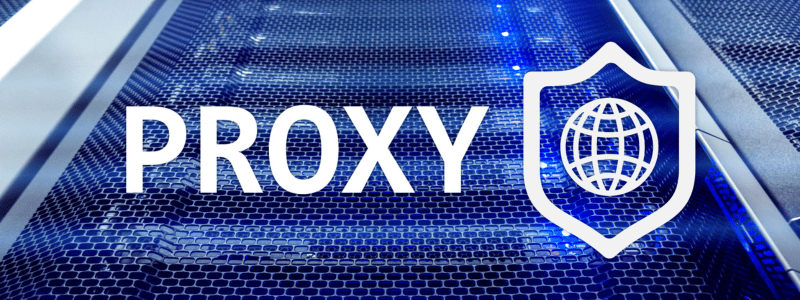In today’s digital world, maintaining online privacy and security is more crucial than ever. This is where proxies come into play. Specifically, private proxies are essential tools for safeguarding your internet activities. But what is a private proxy exactly? Let’s dive deep into this subject and uncover all you need to know.
Understanding Proxies
What is a Proxy Server?
A proxy server acts as an intermediary between your device and the internet. When you connect to a proxy, your internet traffic is routed through the proxy server, which masks your IP address and can enhance your online security and privacy.
Different Types of Proxies
Proxies come in various forms, each serving different purposes and levels of privacy.
Public Proxies
Public proxies are free and available for anyone to use. However, they often suffer from slow speeds, unreliable connections, and limited security features.
Shared Proxies
Shared proxies are used by multiple users simultaneously. While they offer better performance than public proxies, they can still be less secure and slower compared to private proxies.
Private Proxies
Private proxies are dedicated to a single user. They offer the highest level of security, speed, and reliability, making them ideal for sensitive tasks and heavy internet use.
What is a Private Proxy?
Detailed Explanation
A private proxy is a type of proxy server exclusively assigned to one user at a time. Unlike public or shared proxies, private proxies provide unique IP addresses and ensure that your internet activities remain confidential and unshared with others.
How It Differs from Other Proxies
Private proxies stand out due to their exclusivity. Since they are not shared with other users, they offer superior speed, security, and performance. This makes them particularly useful for tasks requiring high privacy and reliability, such as accessing restricted content or conducting sensitive business activities.
Advantages of Using a Private Proxy
Enhanced Security
Private proxies offer robust security features, protecting your data from hackers and unauthorized access. By masking your IP address, they help prevent cyber attacks and identity theft.
Improved Performance
Since private proxies are not shared with others, they provide faster and more reliable internet connections. This is crucial for activities that demand high bandwidth and low latency.
Better Anonymity
Private proxies ensure a higher level of anonymity by providing a unique IP address that cannot be traced back to you easily. This is essential for maintaining privacy while browsing or conducting online transactions.
Access to Restricted Content
Private proxies can bypass geographical restrictions and censorship, allowing you to access content that might be blocked in your region. This includes streaming services, websites, and online games.
How Private Proxies Work
Connection Process
When you connect to a private proxy, your internet traffic is routed through the proxy server before reaching its final destination. This masks your IP address and assigns you a new one provided by the proxy server.
Data Encryption
Many private proxies use encryption protocols to secure your data as it travels between your device and the proxy server. This ensures that sensitive information remains protected from prying eyes.
IP Masking
By masking your real IP address, private proxies prevent websites and online services from tracking your online activities. This helps maintain your anonymity and protects your privacy.
Use Cases for Private Proxies
Personal Privacy
Private proxies are excellent tools for individuals who value their online privacy. They help keep personal information secure and prevent tracking by websites, advertisers, and other entities.
Business Applications
Businesses use private proxies to safeguard sensitive data, conduct market research, and manage multiple social media accounts without risking security breaches.
SEO and Web Scraping
SEO professionals and web scrapers rely on private proxies to gather data from websites without getting blocked. Private proxies help in avoiding IP bans and ensuring uninterrupted data collection.
Accessing Geo-Blocked Content
Private proxies allow users to bypass geo-restrictions and access content that is unavailable in their region. This is particularly useful for streaming services, online games, and other region-specific platforms.
Choosing the Right Private Proxy
Factors to Consider
When selecting a private proxy, consider the following factors:
Speed
Ensure the proxy offers high-speed connections to avoid slow browsing and buffering issues.
Reliability
Choose a provider known for reliable service and minimal downtime.
Cost
While private proxies are more expensive than public or shared proxies, investing in a good quality proxy is worth the price for enhanced security and performance.
Provider Reputation
Opt for reputable providers with positive reviews and a proven track record in the industry.
Setting Up a Private Proxy
Step-by-Step Guide
Setting up a private proxy is straightforward. Here’s how:
Purchasing a Proxy
Start by purchasing a private proxy from a reliable provider. Ensure they offer the features and IP locations you need.
Configuring on Different Devices
Follow the provider’s instructions to configure the proxy on your device. This typically involves entering the proxy server’s IP address and port number in your device’s network settings.
Testing the Connection
After configuration, test the connection to ensure the proxy is working correctly. You can use online tools to verify your new IP address and check the connection speed.
Common Issues and Troubleshooting
Connectivity Problems
If you encounter connectivity issues, check your network settings and ensure the proxy server details are entered correctly. Restarting your device can also help resolve minor issues.
Speed Issues
Speed issues can arise from network congestion or server overload. Try switching to a different server or contact your provider for support.
IP Blacklisting
If your IP gets blacklisted, it might be due to suspicious activities or frequent access requests. Contact your provider to get a new IP address or resolve the issue.
Security Considerations
Avoiding Proxy Scams
Be cautious of free proxy services and unknown providers. They may compromise your data or provide unreliable service. Stick to reputable providers with positive reviews.
Ensuring Data Privacy
Regularly update your proxy settings and use strong passwords to protect your account. Monitor your internet traffic to detect any unusual activities.
Regular Maintenance and Monitoring
Perform regular maintenance checks and monitor the performance of your proxy to ensure it remains secure and efficient.
Legal and Ethical Implications
Legal Use of Proxies
Using private proxies is legal in most countries, but it’s essential to use them for legitimate purposes. Avoid activities that violate laws or terms of service agreements.
Ethical Considerations
While proxies can enhance privacy, they should not be used for malicious activities, such as hacking, spamming, or illegal downloads. Always use proxies responsibly.
Comparing Private Proxies with VPNs
Differences in Functionality
Private proxies and VPNs both enhance online privacy but operate differently. Proxies route specific app traffic, while VPNs encrypt all internet traffic on a device.
Pros and Cons of Each
Private proxies offer faster speeds and better performance for specific tasks, while VPNs provide broader security by encrypting all data. The choice depends on your specific needs.
Future of Private Proxies

Emerging Trends
The demand for private proxies is growing, driven by increasing concerns about online privacy and security. Innovations in proxy technology continue to improve their performance and usability.
Potential Challenges
Despite their benefits, private proxies face challenges such as IP blacklisting and legal restrictions. Staying informed and adapting to changes is crucial for proxy users.
Conclusion
Private proxies are powerful tools for enhancing online privacy, security, and performance. Whether you’re an individual seeking anonymity or a business needing secure internet access, private proxies offer numerous benefits. By understanding their functions, advantages, and proper use, you can make the most of this valuable technology.
FAQs
1. What is the difference between a private proxy and a public proxy?
Private proxies are dedicated to a single user, offering better security and performance, while public proxies are shared and often slower and less secure.
2. Can private proxies be traced?
While private proxies enhance anonymity, they can still be traced by sophisticated tracking methods. However, they significantly reduce the likelihood of being tracked compared to using no proxy.
3. Are private proxies legal to use?
Yes, private proxies are legal in most countries, provided they are used for legitimate purposes and not for illegal activities.
4. How do I know if my private proxy is working?
You can test your private proxy by checking your IP address online. If the IP address matches the one provided by your proxy, it is working correctly.
5. What are the best practices for using a private proxy?
Use private proxies from reputable providers, regularly update your settings, monitor your internet traffic, and avoid using proxies for illegal activities.
Discover more about securing your digital life and protecting your online activities with our in-depth guide on Cybersecurity: Protecting Your Digital Life.

